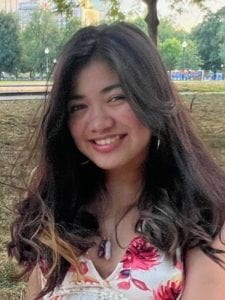The works below were written by first-year students in the Composition Program at the University of Massachusetts Boston, selected for publication by Composition Program faculty serving on the Undercurrents editorial board. Please see our Editor’s Introduction to learn more about our 2022 issue, click About the Journal to learn more about Undercurrents, or click the links below to enjoy our 2022 selections.
“Villarosa uses her awareness of the genre of scientific writing, as well as her knowledge of the white audience, to successfully accomplish her purpose of informing white audiences about racial myths in healthcare without offending or alienating them.”
Alex Der-Kazaryan’s Textism And The Shift In English Writing
“Common sense tells us that practicing something the wrong way will not help us but harm us by creating a ‘bad’ habit, but what we see here is that there may be some exceptions to that rule.”
“Despite a general consensus that language education is essential, there is quite a lot of disagreement about who should receive what instruction, and how it should be given.”
Anna Krasnoslobodtseva’s Moral Punishment
“We want revenge; we want evil people to rot in hell because it makes us feel better and morally superior. Revenge is a natural human emotion, but just because it is natural does that make it correct?”
Kylie Medeiros’s Your Teachers Are Bullshitting You
“The entire premise of bullshit is to convince the audience of your knowledge and authority, and if the teacher has seen through that, then you have done a bad job, either in the linguistic aspect or in the rhetorical aspect.”
Vance Naftal’s Fake News’ Negation of a Useful Education
“The reality of the internet is that it strives to put everyone within a box to drive profits within its own sector. With the exponential growth and pull towards fake news outlets, this has begun to create a closed-minded society.”
Karina Silva’s The Brain, The Block, The Bummed Writer
“When we undergo writer’s block, certain areas in our brains are not as activated as they should be while we are writing. Most, if not all, techniques and solutions may revolve around increasing levels of activation in the frontal and occipital lobes.”
“It’s possible to reap the benefits of both worlds, relearning certain brain functions without having to give up the convenience of modern technology. The solution is not to eliminate smartphones and computers, but simply to decrease the amount that we use them.”
“High School Musical‘s overarching message is one of liberation, urging the audience to dissolve clique-y, stereotypical perspectives. Yet, this theme questionably does not seem to apply to gender.”








